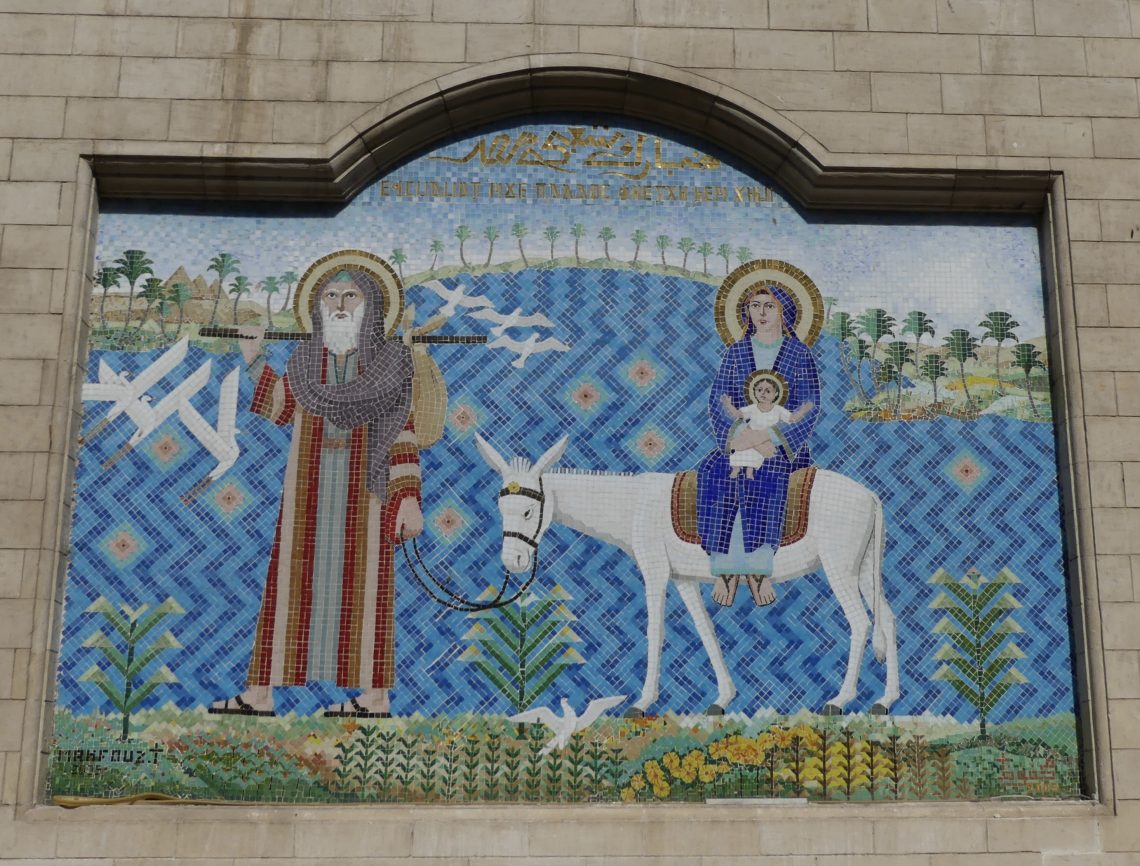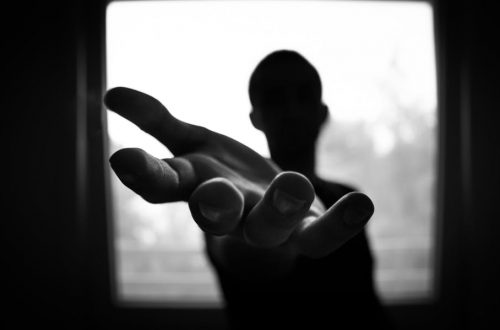
I Was Wrong about Egypt
When I had the opportunity this past March to go to Egypt, I was not thinking of the journey as a trip to the Holy Land…. I mean, talk about the “Holy Land,” and most people will think you mean modern Israel, the Palestinian territories, western Jordan, southern Lebanon and even southwestern Syria. Jews, Christians, and Muslims all regard these parts of the earth as holy. But did you notice Egypt was not on that list?
For me, too. In fact, I thought of Egypt as being more like the un-holy land. Wasn’t Egypt where Israel lived enslaved for centuries? Wasn’t that where the plagues happened in response to evil? Wasn’t Egypt the enemy of God’s people?
Yes. But that wasn’t the whole picture.
I’m not sure why I associated Egypt in redemption history with “bad.” Except, I had heard long ago from a Bible teacher (fortunately, I don’t remember who or where) that “Egypt” stood for disobedience in God’s program. And the impression stuck.
But it was simply untrue—or certainly not the whole picture, as I soon learned….
I sensed from the Egyptians I met on my arrival that they were proud of their heritage as a place where the Holy Spirit had moved in the Jedo-Christian story. And I noticed pretty quickly that their go-to narrative was not the one about slavery and plagues, but the one about how the Holy Family took take refuge in Egypt, and how God later called his Son out of their country (Matt. 2:15). Maps at various points throughout Cairo even showed the most likely travel route from Bethlehem to this place of asylum.
That piqued my curiosity. But my paradigm really kicked into a high-gear shift when I stood at the entry to a Coptic church (“Coptic” means “Egyptian”) and two mosaics caught my eye. The first was of Joseph and the dream—and not the Joseph with a coat of many colors, but the other one that we associate with dreams and Egypt in Bible history. The angel instructed him to take Mary and Jesus to Egypt until Herod died. As I stood looking at the image of that Joseph sleeping and the angel telling him to flee with the child (Matt. 2:13), I noticed an important detail—something I’d never thought about. The angel was pointing to pyramids. And I wondered: Were the pyramids there in the time of Christ? And indeed, they were. So, why had I never envisioned the toddler Jesus in pyramid country?
The second mosaic featured Joseph obeying; we know that scene as the Flight into Egypt (vv. 14–15). I stepped closer to examine Joseph on foot leading a donkey that carried Mary, who held baby Jesus. And in the picture, the Holy Family was traveling along a palm-tree-lined Nile with pyramids in the background. I thought: The Nile? Pyramids? I had always connected these with God’s punishment. But here these palms and pyramids represented Egypt as the site of refuge for God incarnate. Whoa.
So, I asked myself…in what other times has Egypt and/or her people stood for something good in scripture? And as I counted all the Bible stories, I was astounded at the length of the list. There was the time Abraham fled to Egypt to avoid starvation in famine (Gen. 12:10–20). And Hagar, an Egyptian on her way back to Egypt, was the first (and last) person ever to name God, calling him El Roi—the God who sees (16:13).
I re-read where Abraham’s great-grandson Joseph, the one with the colorful coat, got sold into slavery in Egypt and how God raised him to pharaoh’s palace so food in Egypt could save Israel (see Gen. 37–50). That made twice in redemption history that Egypt had been the means through which God kept his big-P Promise.
The Holy Spirit was certainly with the family of Moses, who was born in Egypt to brave Amram and Jochebed, a couple who practiced civil disobedience (Num. 26:59). And midwives Shiphrah and Puah also chose civil disobedience, because they feared God more than pharaoh; thus, they saved Moses at his birth, even though they were ordered to kill all the baby boys (see Ex. 17).
Pharaoh’s daughter could not have been all bad, as she had mercy on a Hebrew child marked for death that she found in the Nile (Ex. 2:5–7; some scholars think she is the daughter of Pharaoh mentioned in 1 Chronicles 4:18, that she left Egypt as part of the Exodus, and that she was integrated into the tribe of Judah). Moses’s sister, Miriam, found a nurse to suckle him. She grew up to co-lead a national worship event with Moses (Ex. 15). Aaron, their brother, also born in Egypt, became the father of Israel’s priestly family. Surely, the Spirit of the Lord was moving in this place.
Moses fled to Midian after killing an Egyptian. And he looked so much like an Egyptian that his future wife and her sisters said of him, “An Egyptian rescued us from the shepherds” (2:19). When I re-read that, I wondered why I had never imagined Moses dressed and groomed like a member of the Egyptian royal household…. (Can I blame that on Charlton Heston?)
Moses put his wife and child on a donkey and sent them from Midian to Egypt (4:19) when God called him to return. (Does that remind you of another family who will do that again later?)
The biggest surprise, though, came when I re-read the accounts of the plagues themselves. Instead of finding an “us”/”them” or an “Israel”/”Egypt” division, I saw a “fear God”/”refuse to fear God” division. Indeed, I saw that even the Egyptians at the time of the plagues were the objects of God’s concern and mercy:
Ex. 7:5 – “And the Egyptians will know that I am the LORD…”
9:16 – [God to Moses:] “But I have raised you up for this very purpose, that I might show you my power and that my name might be proclaimed in all the earth.”
9:20 “Those officials of Pharaoh who feared the word of the LORD hurried to bring their slaves and their livestock inside.” [Why had I never noticed that some of the Egyptians feared the Lord?]
11:3 “Moses himself was highly regarded in Egypt by the Pharaoh’s officials and by the people.”
12:37-38 – “The Israelites journeyed from Ramses to Sukkoth There were about six hundred thousand men on foot, besides women and children. Many other people went up with them…” [Wait. What? A bunch of Egyptians left with them?]
14:4 “But I will gain glory for myself through Pharaoh and all his army, and the Egyptians will know that I am the LORD.”
14:17–18 – “I will gain glory through Pharaoh and his army, through his chariots and his horsemen. The Egyptians will know that I am the LORD when I gain glory….”
15:14 – “The nations will hear and tremble….”
I had always read “that they might know I am the LORD” as “that they might know what idiots these people were to defy me.” I know. Pathetic. The God who loved the world (and later demonstrated it by giving His only Son) made himself known, that “whosoever will may come.” And many did.
Praise be to God, the work of the Spirit didn’t end there.
On the day of Pentecost, people from Egypt were present (Acts 2: 10). Apollos, the eloquent speaker whom Aquila and Priscilla instructed in Ephesus, was from Alexandria, Egypt (18:24). Church history places John Mark in Alexandria, and the Coptic Church traces their origin back to Mark. In fact, some scholars think the Gospel of Mark was written in Egypt.
A fragment of the Gospel of John, written in Coptic, was found in Upper Egypt and can be dated to the first half of the second century. At that time, Christianity began to spread to the rural areas, and the scriptures were translated into the local language, namely Coptic.
In March, as my husband and I entered king’s tombs and monuments, we saw places where crosses had been tastefully etched in columns centuries ago, reminders that the church was once strong in Egypt. We were told by our Muslim guide that when some of the temples and tombs fell into disuse or decay, Christian believers gathered in them—but rather than destroying gorgeous art that depicted other gods, they covered the craftsmanship with tapestries.
And what of the future? The word of the Lord through the prophet Isaiah, prophesied this about Egypt:
19:18 In that day five cities in Egypt will speak the language of Canaan and swear allegiance to the Lord Almighty. One of them will be called the City of the Sun. 19 In that day there will be an altar to the Lord in the heart of Egypt, and a monument to the Lord at its border. 20 It will be a sign and witness to the Lord Almighty in the land of Egypt. When they cry out to the Lord because of their oppressors, he will send them a savior and defender, and he will rescue them. 21 So the Lord will make himself known to the Egyptians, and in that day they will acknowledge the Lord. They will worship with sacrifices and grain offerings; they will make vows to the Lord and keep them. 22 The Lord will strike Egypt with a plague; he will strike them and heal them. They will turn to the Lord, and he will respond to their pleas and heal them. 23 In that day there will be a highway from Egypt to Assyria. The Assyrians will go to Egypt and the Egyptians to Assyria. The Egyptians and Assyrians will worship together. 24 In that day Israel will be the third, along with Egypt and Assyria, a blessing[b] on the earth. 25 The Lord Almighty will bless them, saying, “Blessed be Egypt my people, Assyria my handiwork, and Israel my inheritance.”
In the Hebrew Bible, Egypt is mentioned nearly seven hundred times. Add the New Testament, and we have another twenty-five. Certainly not all are positive. But the story of slavery and captivity is not the only story or the whole story in the complicated relationship between Israel and Egypt. Egypt has sometimes served as the go-to place of asylum for those fleeing famine or oppression—so, sometimes an adversary, but at key times an ally.
In our own time, remember those twenty-one martyrs—of whom the world is not worthy—who were beheaded on a beach in Libya rather than deny the name of Jesus Christ? All but one were Egyptian.
The Spirit is at work in the nations. And God is impartial; he does not take sides. So, if we wish to be like him, we too must be fair to all, impartial with all. We must recognize that when it comes to our standing before God, one nation or people group can neither be “in” nor “other.” God makes his assessment of people not on the basis of what country we are from or group we belong to, but how we respond to what he has revealed. We must never prioritize love of nation over fear of God.




